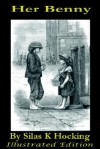Currently reading
The Lonely Sea: Collected Short Stories
Her Benny
Vedere din Parfumerie
Mysticism and Logic (Western Philosophy)
The Analects of Confucious
Pragmatism: A New Name for Some Old Ways of Thinking
Does Anything Eat Wasps?: And 101 Other Unsettling, Witty Answers to Questions You Never Thought You Wanted to Ask
Mutual Aid
City of Djinns: A Year in Delhi
The Brothers Karamazov
Modern English short stories 1930-1955
 Most of the stories which I've managed to read are like an old, comfortable joke which is told with longer and longer flourishes until the punchline comes as some insignificant disappointment towards the end. Many are like long morality tales, except the moral isn't especially important anymore. There are some major names in this Oxford compilation, such as Waugh, Graham Greene, and Virginia Woolf. One or two stories, such as the hopeless conundrum faced by a German General in WWII seem very modern still, but I do wonder if the Oxford chums banded together to produce an amusing little trifle between cricket games.
Most of the stories which I've managed to read are like an old, comfortable joke which is told with longer and longer flourishes until the punchline comes as some insignificant disappointment towards the end. Many are like long morality tales, except the moral isn't especially important anymore. There are some major names in this Oxford compilation, such as Waugh, Graham Greene, and Virginia Woolf. One or two stories, such as the hopeless conundrum faced by a German General in WWII seem very modern still, but I do wonder if the Oxford chums banded together to produce an amusing little trifle between cricket games.Update: I tried reading most of the remaining stories. I'd just had bad luck with most of my first choices. The lovely story of the only Selkie who tried to understand human culture has this simple fable against pointless work:
"Our teachers had told us that men endured the burden of human toil to create a surplus of wealth that would give them leisure from the daily task of bread-winning. And in their hard-won leisure, our teachers said, men cultivated wisdom and charity and the fine arts; and became aware of God.-But that's not a true description of the world, is it?"
Special kudos to Frances Towers for "The Little Willow", and Graham Greene, who tells the story of a little boy's lose of innocence with exquisite, highly quotable detail.













